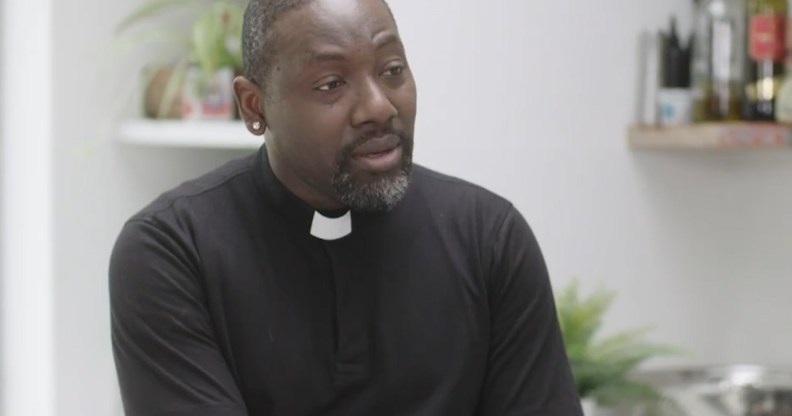HIV positive gay priest Jide Macaulay: ‘I thought I’m going to die’

“Talking about HIV within my faith community was challenging” says Reverend Jide Macaulay
Openly gay priest Jide Macaulay wants to end the stigma around being HIV positive.
Reverend Macaulay discovered he was HIV positive on a routine check up and immediately “was hit with a shock.”
“Everything was clouded in that moment,” he explained. “I was very much in pain.”
A gay and HIV-positive activist, Macaulay is vocal about inclusion within the church.
He founded House of Rainbow to create a safe environment for BAME and LGBT+ communities and was recently the subject of a BBC documentary about being gay and religious.
After being diagnosed with HIV in 2003, the Church of England deacon feared leaving his house.
“You know, I was immediately concerned about going out because I didn’t know how to communicate things to other people,” he said.
“In fact, I didn’t tell anyone else.”
Now, 16 years later, he wants to change the conversation around HIV—especially within his faith community.
Watch the video below to see Jide Macaulay share his journey of coming out as HIV positive:
“I thought OK, this is it, I’m going to die.”
Gay priest @RevJide is #HIV positive and wants to end the stigma. https://t.co/XwcRUPC320 pic.twitter.com/LSHG0T82fg
— PinkNews (@PinkNews) August 3, 2019
In an interview featured by Stonewall, the openly gay reverend defended the right for LGBT people to be included by faith communities.
“Those who argue against the sexuality of the LGBT community actually need to take it up with God because I have taken it up with God and I have reconciled,” he said.
“If we put ‘gay’ into an acronym, ‘G-A-Y,’ it simply means God Adores You.
“God Admires You, God Accepts You, God Accommodates You, God Anoints You.”
As well as being vocal about LGBT-inclusion within the Church of England, Macaulay wants to break down the stigma around being HIV positive.
“I have enabled myself, through much learning, to become a voice [for] gay people in the church,” he explained. “And also for people living with HIV.
“I think it is important to remove the ignorance and educate our faith leaders and those within the communities around the subject.”

